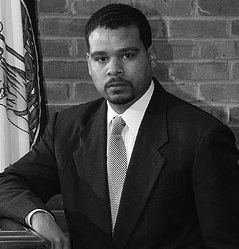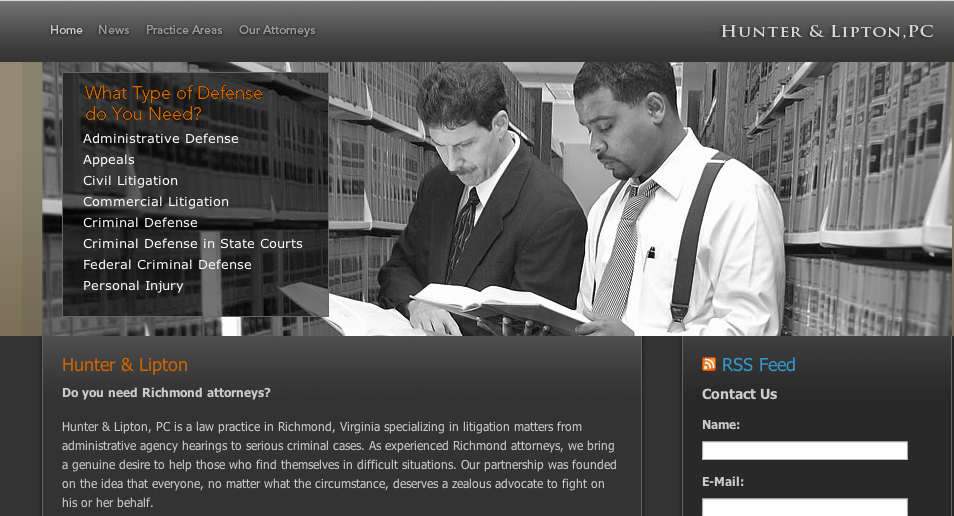In my October 2012 article, “Law Firm Websites: Ethics and Compliance Issues,” I wrote concerning the complex web issues that attorneys face. The next month i mentioned the 7,000-plus lawyer blogs, in “Blogging for Lawyers: Lessons Learned.” In case you combine the 2, you get this month’s topic: the law blog as advertising. As blogs have proliferated during the last decade, the legal profession has needed to decide find out how to regulate use and content when it comes to the principles of pro Conduct. Only 1 attorney has truly challenged those boundaries, within the recently concluded battle of Hunter v. Virginia State Bar.
Horace Hunter is a criminal defense attorney in Richmond, Virginia, practicing law at Hunter & Lipton. As is the case with many small law firms, he uses the internet as a marketing tool. In the website was a bit entitled “This Week in Richmond Criminal Defense,” wherein he discussed cases, clients, and points of view. Hunter believed this was a blog. Since 2010, he has battled the Virginia State Bar in regard to the content of his website — specifically that the Bar insisted he post an advertising disclaimer at the site. He believed that this was a contravention of his rights to free speech under the primary Amendment of the u. s. Constitution.

Horace Hunter
On February 28, 2013, the Virginia Supreme Court held that a disclaimer was required under the state’s advertising rules. Hunter filed a Petition for Writ of Certiorari with the U.S. Supreme Court, which denied cert just last month, putting an end to the conversation — for now. Despite the changes in rules and technology, the Supreme Court has not heard a case at the issue of lawyer advertising for many years now.
I’ve spoken and written in this case for the last three years, including an American Bar Association program with Hunter himself in April 2012. He was not afraid to openly discuss the case because it worked in the course of the courts. He took on enormous time and great personal expense to wage what he believed was a primary Amendment battle without spending a dime speech. Simply adding a disclaimer and creating a change or two upon receipt of his disciplinary infraction from the Virginia State Bar in 2010 would have likely concluded the problem. You ought to admire his standing on principle.
Legal bloggers have long debated the subject of free speech versus advertising. For probably the most part, the ethics attorney in me has trumped the selling attorney, believing that blogs have to be regulated within the same fashion as websites. Seeking to distinguish them is a grey area at best, and that i know of few, if any, lawyers which can be simply blogging since it just sounds like a fun thing to do. We do it for visibility, to brand, and message. We do it to market.
While state bars have increasingly addressed problems with websites, blogs, social media, and texting, it’s been more in step with differentiating rules of electronic instead of print, which was what many of the original rules were in line with. There were few challenges to blog use. And neither the person attorney nor the state bar is especially inquisitive about spending the time, money, and resources investigating the subject further.
Hunter believes his case was far more important than just blog and disclaimer regulations. In a correspondence I received from Hunter, he stated “This is an important case since the First Amendment issues at stake listed below are going to shape the parameters for lawyers and other professional with the ability to openly communicate to the general public going forward within the age of social media and different kinds of communication through non-traditional media.”
History has shown that many states will look to the teachings of Hunter v. Virginia State Bar as they identify ethics issues that may arise out of website, blog, and social media use. There are blogs authored by attorneys by which a case may be made that they’re more consistent with editorial views than advertising. For those who indeed want to author a blog that doesn’t fall into the advertising realm, there are methods to structure it. A similar rules of thumb would apply to social media.
Free Speech, Not Advertising
If you must attempt to avoid following the principles of pro Conduct, and in some states potentially filing requirements, give thought the next in structuring your online messages.
- Do not incorporate pages and links in your law firm website.
- Create the perfect disclaimer.
- Show no signs of soliciting or promoting yourself for brand spanking new clients and cases.
- State the point of your blog.
- When applicable, limit your blog’s “jurisdiction,” as attitudes vary by state.
- Express actual opinions and points of view, as opposed to regurgitate the scoop.
Advertising, Not Free Speech
In most cases, especially on social media pages, good judgment does prevail. In case you are clearly not using the posts to sell legal services, possible make the free speech argument. Don’t use here if seeking to make the free speech claim.
- “Call now for additional information.” Prominent placement of phone numbers and online forms.
- Links to pages selling practice areas and attorneys.
- Suggesting someone call you if impacted.
- Combining pages of a domain and a blog or social media page.
- Listing “results” in a sales-oriented fashion.

Hunter & Lipton’s website.
Summary
When authoring a law blog, that’s better to be safe than sorry in abiding by a similar algorithm put forth for websites and social media. In case your message or the format of your content suggests advertising or marketing, then follow the foundations. In case you truly believe you’re espousing points of view or not speaking to or targeting prospective clients, perhaps you are taking your chances within the gray area. While under no circumstances true 100% of the time, the common-sense “eye test” can usually determine the end result.